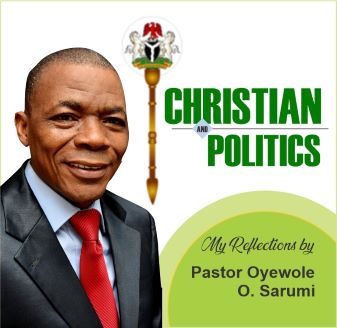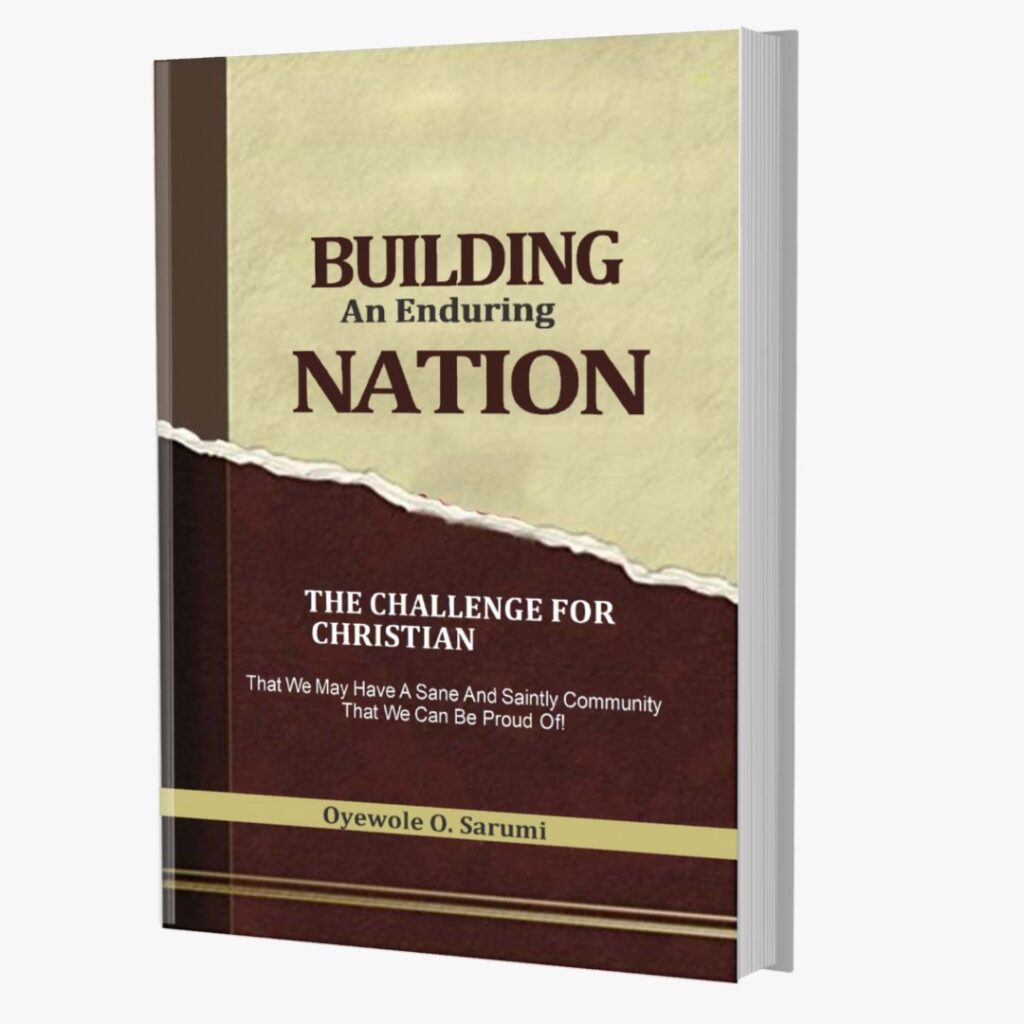THE CONCEPT OF NATION-BUILDING
Nation-building is a concept that means different things to different people. It is the formation of national identity using the power of the state and the people using a determined model. As such, to qualify as a Nation builder, one has to be engaged in taking up initiatives to develop the immediate and national community.
The concept generally assumes that someone or something is doing the building and initiatives intentionally. Usually, it takes a long time and it is believed to be a social process that cannot be jump-started from the outside.
Nation-building evolves from the basics of respect for national signs and symbols like flags, anthems, languages, and observance of civic duties.
A common challenge of nation-building for many new states is to want to opt just shortly after independence or much later. The attempt by Biafra to secede from Nigeria in 1970 and the pronounced struggle for freedom from Spain by Catalunya readily come to mind.
Traditionally, there has been some confusion between the use of the term nation-building and that of state-building.
Although they are used interchangeably, there’s a slight difference. The former is usually used to refer to national identity while the latter is used to refer to infrastructural development and the institutions of the state.
The term Nation-building gained prominence in the late 1960s and early 1970s when President Julius Kambarage Nyerere of Tanzania strongly advocated it for fragile post-Colonial African states.
According to Olalekan Adigun, there is the usual temptation to reduce the meaning of the concept to national integration, national development, political development, or national consciousness which truly it is but not only.
Simply put, it is the process of making a people, with varying backgrounds and affiliations, feel they belong together under a nation.
THE DIMENSIONS OF NATION-BUILDING
There are two dimensions to nation-building. First, in nation-building, States seek to achieve political maturity and progress.
Every nation has a history whether positive or negative that it can learn from and forge into the future. In every decision we make as a nation, we must see where we’re coming from and where we are going; that shows a true sense of maturity.
The second dimension of nation-building is the achievement of economic progress. A nation’s citizens must be empowered to make good financial decisions in their lives, careers, jobs, and businesses.
All citizens must have the opportunity to thrive and reach their full potential for growth and development. Growth and development as it were must not just be evident but also clearly distinguishable.
Economic growth refers to a rise in national income; per capita income or production income. Economic development on the other hand is defined as the process whereby the real per capita income increases over time through changes in the quality and quantity of production factors and the institutionalization of the growth process.
In particular, development implies not merely the growth of per-capita real income, but also its distribution, the sources of growth, the development of infrastructure, and the administrative framework essential to sustained and cumulative growth.
THE SOCIAL DIMENSION OF NATION-BUILDING
To build a strong nation, we must encourage unity in diversity. Ethnicity and language must never divide a people but should unite them.
As Christians, oneness and not division should be the guide word. No one should be ill-treated and marginalised. We must encourage the multiplicity of groups in a nation.
We should be wary of allowing politicians to plant seeds of discord and division amongst us as a people especially ethnic and tribal division since we are one body of Christ.
There is a need for cultural tolerance and alignment. We must have respect for other cultures and beliefs that are peculiar to others.
As a people, we need to begin to see diversity as a gift that can be harnessed to our favour. The implication of 250 people with different backgrounds in an organization is 250 different solutions to common problems, 250 wealth creation ideas, 250 common pool for common benefits, and many more. These can only bring uniqueness, style, specialty, and substance.
In the same way, the opportunities abounding in having over 250 ethnic groups supersede the disadvantages. The gains obviously outweigh the pains because Together Everybody Achieves More.
De 32:30 How could one single enemy chase a thousand of them, and two put ten thousand to flight unless their Rock had abandoned them Unless the Lord had destroyed them? (TLB)
As with all of God’s promises and prizes, they come with a price. Yes, Jesus paid the price already on the cross, but we still need to believe and accept His Lordship to activate the entirety of the package delivered to us.
Jos 23:10 One of your men puts to flight a thousand, for the Lord your God is He who fights for you, just as He promised you. (NASB)
NATURE OF THE NIGERIAN PROJECT
Several questions have been asked about the Nigerian project, its essence, legality, status quo, and feasibility.
This challenge has arisen as a result of the various geographical and political strives that have ravaged the nation since the first decade.
Some would argue that the Nigerian project has made considerable progress while some people of another school of thought are of the opinion that even if the project is moving, it’s only doing so at a snail-like pace.
In evaluating the Nigerian project and how far we have come, it is important to present the question of “Why Nigeria?”
The nation Nigeria, as we have it today is a product of the merger of the then northern protectorate and southern protectorate.
Before this event, the Nigerian state had been a political entity with numerous diversities which made governance difficult. The Southern Protectorate, the Northern Protectorate, and the Colony of Lagos all had their own separate styles of government.
This regional structure meant different laws were applicable in the Protectorates and in the Colony of Lagos. The Protectorates and the Colony of Lagos were quite self-autonomous and governing them with different laws proved quite a task
The idea of a merger was borne to make governance easier for the colonial rulers; to checkmate the different rival policies that were springing up in different parts of the country as a result of the decentralised system of government that was in place and to bring together a pool of scattered resources for common benefits.
In retrospect, the first two were achieved in the immediate. However, alongside amalgamation and distribution of resources came the problems of ethnocentrism, marginalisation, nepotism, corruption, and unemployment to mention a few.
In recent years, the Nigerian project has been at the mercy of a caucus that acts based on their discretions. At other times, outside influence has pervaded the system and has inevitably defeated some of the subsequent reasons for executing a merger.
Today, the Nigerian project has faced so many objections as to its sustainability with many people questioning even the essence. We are at a stage where some sects publicly deny affiliations with the Nigerian history, identity, and its roots.
In the light of the above, our existence as people has been threatened from several quarters and if we must scale through, we now need to focus and pay immense attention to details.
We must begin to weigh the pros and the cons, putting at the back of our minds that we are stronger together than as a unit. We can do more with many more resources. With a larger pool, there’s a larger probability and with a lesser pool, there are limited options.
If there must be a progressive Nigerian project, then we have to first believe, next consciously walk and work the talk. There must be collective responsibility and shared workmanship.
Involvement and participation at the grassroots and bigger levels must become non – negotiable.
This is Nigeria and till further notice, it is ours!
The Church can instill good leadership
This dimension of nation-building is so crucial in spearheading the nation to peace, progress, and prosperity. We need good leadership in the church, family, workplaces, and the nation as a whole.
Nigeria and other African States are in need of quality and God-fearing leadership. This leadership can be built in stages; from one level to another. Young people must take their time to learn and rise through the ranks of leadership.
- Let us pray for good leaders in our society. Let us vote to choose good and incorruptible leaders by participating through voting. We need God-fearing men and women who can demonstrate a high sense of competence and integrity in and out of office.
- A good leader is one who demonstrates a high sense of competence, knowledge, and skill in his professional and private life.
- Knowledge is so crucial to leadership. The world is gradually changing. Your knowledge of two years ago is soon becoming extinct if one does not upgrade to current trends of doing things. The technological revolution is a great example.
- A nation must honour and respect her leaders. Exodus 2:28 makes it explicitly clear: “They shall not revile the gods, nor curse the ruler of thy people.”
- The insults and hate speech must stop. It is eating up the fabric of our nation polity and ethos, entering the church, and destroying the fabric of society. Christians should not join the world by calling on radio stations to insult their leaders. You must be the exception to the norm. Express an opinion without insults. This is against the will of God to insult your leaders.
- In nation-building, we must be time conscious. Lateness is a setback to national progress. The status quo must change. Productive hours should not be wasted on irrelevances.
- The Christian is the light of the world. The light of the nation. We must all endeavour to be good examples in our communities. The church should not only be involved in nation-building but also be playing a leading role.
- The key roles of the church in nation-building include: Prayer, good scriptural teachings and messages, training of youth and communities, be involved in healthcare and education, social work, advocacy and mobilization of the people and populace to their civic responsibilities, obligations to the state and rights of others in the society.
Excerpt from the book: Building an enduring nation: To get your copy, follow this link https://www.amazon.com/dp/B0981492YH/ref=sr_1_fkmr1_2?dchild=1&keywords=Building+an+enduring+nation%3A+The+challenge+for+Christians&qid=1624981159&s=books&sr=1-2-fkmr1
“You can reach the author for spiritual leadership coaching and development through Email: leadershipmgtservice@gmail.com


